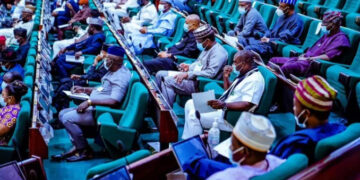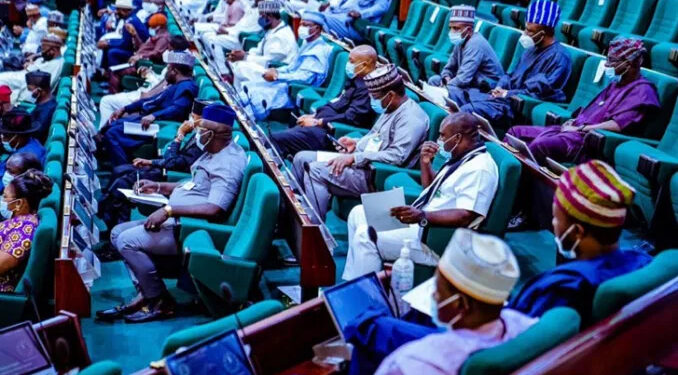By John Ikani
Nigeria’s lower House of Parliament has in response to demonstrations across the country by hundreds of women, rescinded its decision on three gender bills earlier rejected at a constitutional amendment session.
On March 1, the lawmakers voted against five gender bills among which are the bills to provide special seats for women in the national and state houses of assembly; to provide reserve quota for women on appointments; expand the scope of citizenship by registration; provide for affirmative action for women in political party administration; and provide criteria for qualification to become an indigene of a state in Nigeria.
But at plenary on Tuesday, the House deliberated on the 68 Bills as part of the ongoing Constitutional amendment and decided to reconsider “Expansion of the Scope of Citizenship by Registration”; “Affirmative Action for Women in Political Party Administration” and “Qualification to become an Indigene of a State in Nigeria”.
Announcing the decision, the Speaker, Femi Gbajabiamila, said, the House decided to reconsider the Bills in order to give women the needed encouragement to participate in the affairs of the nation.
He went on to note that the 3 bills would be recommitted into the next consideration of Bills coming up soon.
How Nigerian women protested against the bills rejections
Singing songs and carrying placards on International Women’s Day, the protesters largely made up of women vowed to continue pushing until their demands were met.
It was the second such protest within a week.
Some of them marched to the parliament complex in the capital, Abuja, for the second time in a week.
In Lagos, the nation’s commercial hub, women had gathered at the government secretariat at Ikeja, the city’s seat of power, singing loudly and chanting multiple grievances against society and government.
What you should know
Half of Nigeria’s population is female but women’s representation in politics and government is still very low. Despite years of lobbying and activism, political spaces for women continue to shrink. Female legislators currently make up 4 percent of the legislature, a decrease from 5.8 percent in 2015.
Experts and activists have pointed to a lack of women’s participation in government as a factor responsible for the downscaling of women’s rights, as well as a high rate of gender-based violence and economic inequality in Nigeria.




































